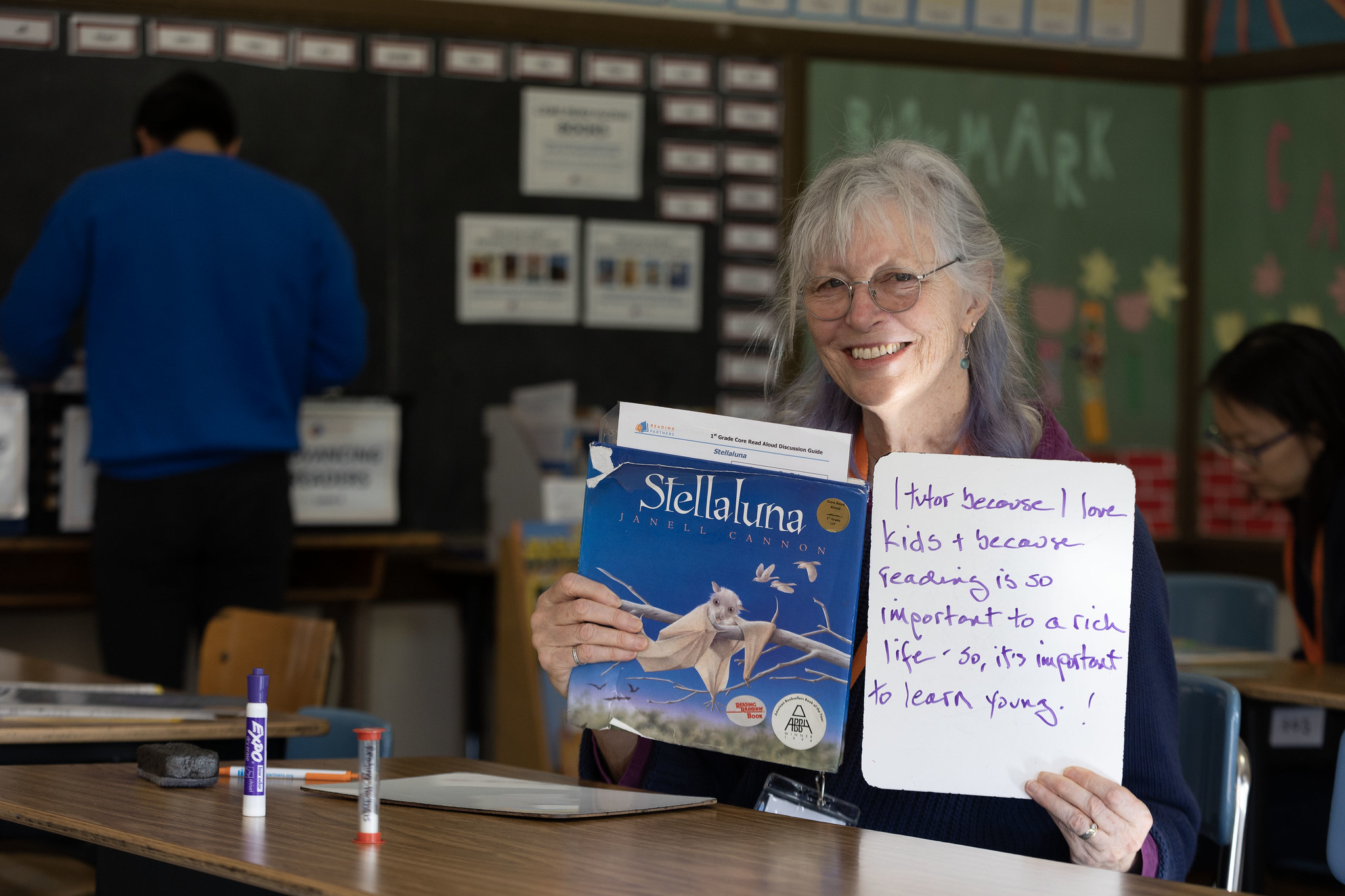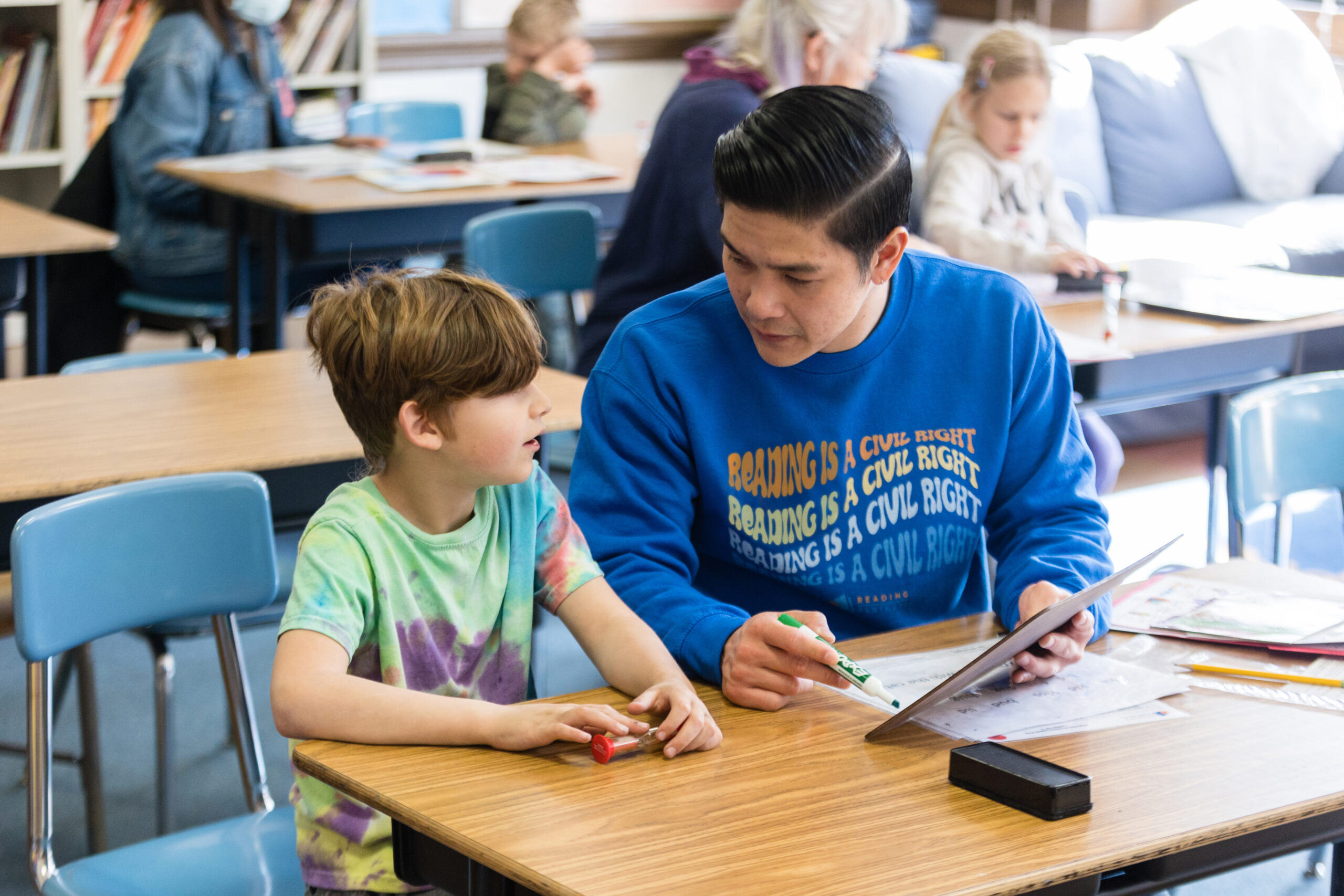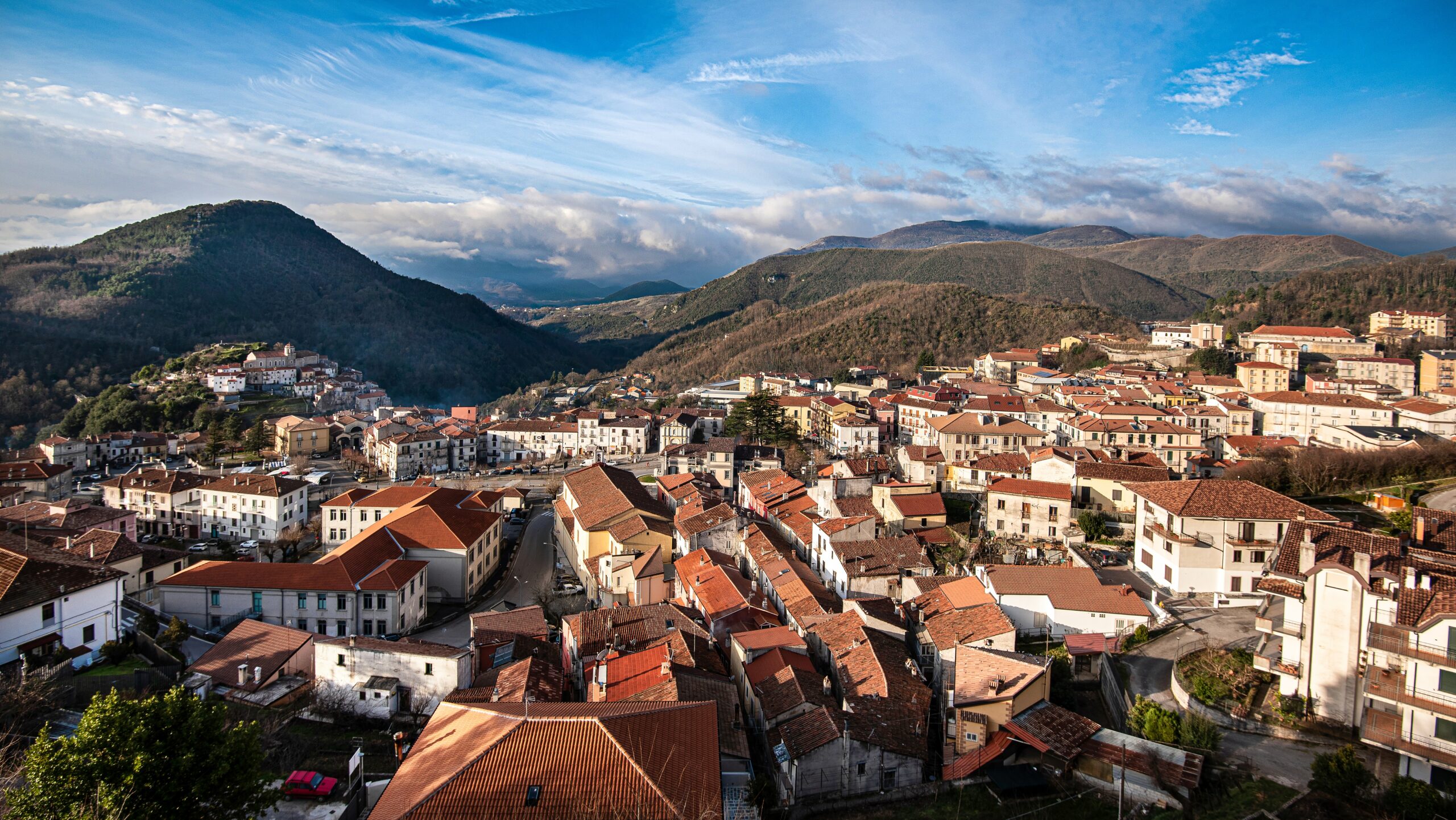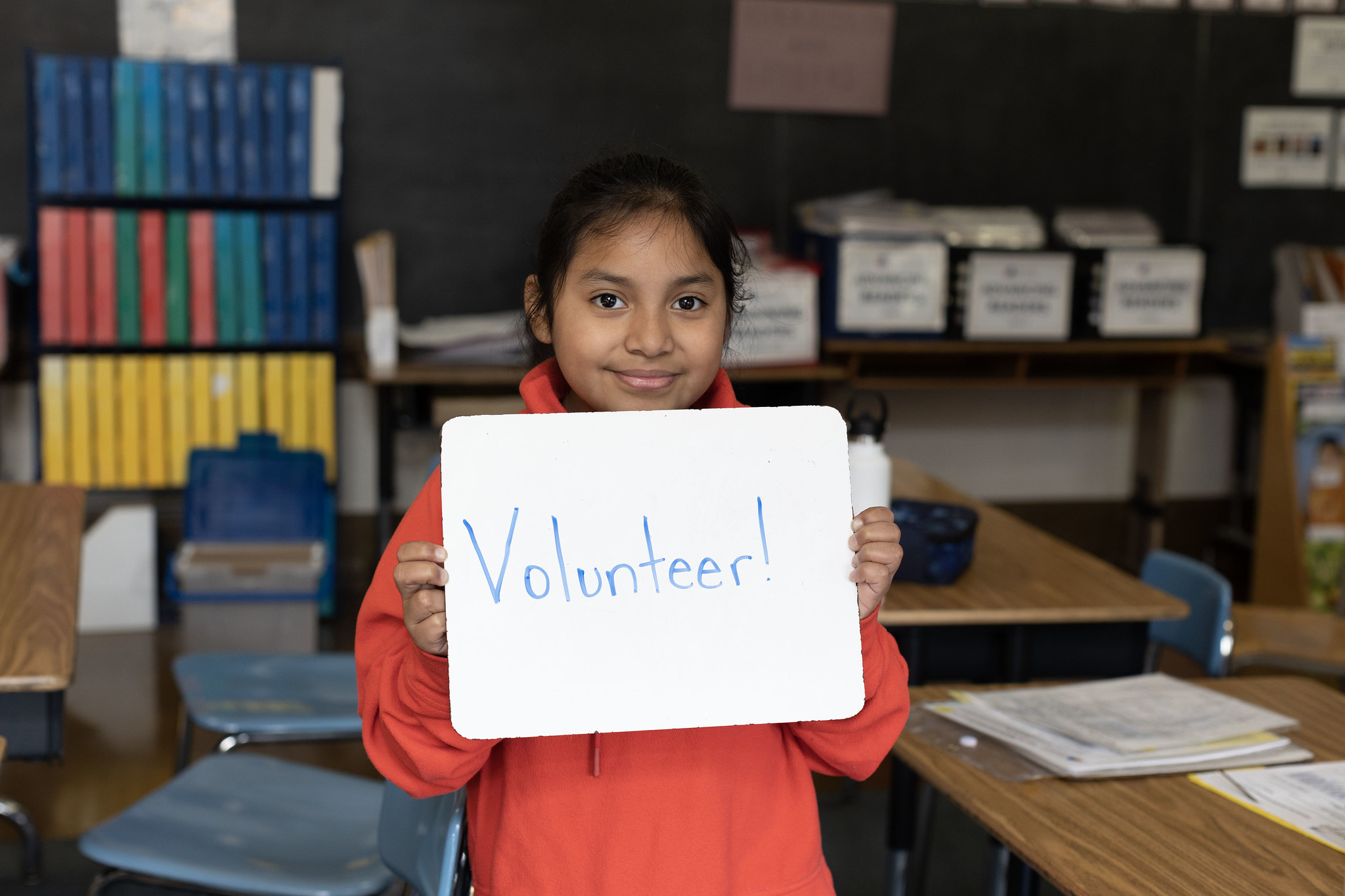May 31, 2023
Living longer and healthier lives through volunteering

Most of us struggle to find enough time in our days to give to ourselves. We hustle all day at our jobs to go home to a busy schedule that deprioritizes rest and relaxation. So isn’t it almost unreasonable to ask us to give away our scarce time to others?
The good news is that it seems this time-famine we have all become susceptible to can be prevented. If time is a precious commodity, then perhaps it may be best to spend the time we do have on investments that feel valuable.
Research has shown that giving away your time to help others can actually help you gain some valuable time back. Although this idea seems counterintuitive, a multitude of studies have found that participants of all ages and backgrounds that regularly volunteer feel more accomplished and satisfied with their time spent serving. The connections they made and the time they spent sparked many health and wellness benefits that actually proved to increase their life expectancy and the quality in which they live.

Time well spent
The phenomenon of time affluence is one’s own perception of how much they are able to accomplish in the amount of time given. Basically, are you happy with what you can get done in the time that you have?
Research by the Association for Psychological Science studied this idea of giving time to gain time. They compared the perceived time affluence of individuals when they gave away their time to helping others, when they were given extra free time, when they had time to waste, and when they were able to spend time on themselves. The research showed that time affluence was strongest in those who chose to give their time away to help others.
Not only does this mean that people can achieve a heightened sense of self-worth by volunteering, it means that time can seem more valuable when given towards a worthy cause. If we want to truly understand this data, it is important to consider what makes an individual feel satisfied with their own use of time and how that relates to the rest of the world.

The essence of a good life
Ancient Greek philosopher Aristotle, theorized that a happy life was built by a consistent effort to act in accordance with virtue, or a moral standard.
One of the key principles to this standard is that serving others is the essence of a good life. Aristotle believed that happiness as a state of being cannot be achieved without a surrounding community that can provide its people with the tools for prosperity. Instead of just surviving, people form lasting connections and receive the proper care they need to really live.
If we take an objective look at many volunteer opportunities, such as warehouse packaging, soup-kitchen assistance or even tutoring students, we can see the social impact on those who participate.
Studies like Dr. Stephen Post’s on the benefits of volunteering shows that long-time volunteers report more enhanced feelings of belonging to a community and stronger social networks when serving. Volunteers are given the opportunities to develop new skills, engage with others with shared values, and even enhance one’s cultural sensitivity through exposure to new populations.
By serving these various communities, volunteers can gain a sense of empathy through exposure and engagement that is unique to these opportunities. Witnessing how people achieve basic human needs like food and shelter can shift our perception of the human spirit. Interacting with groups of friends and families that rely on each other for resources and security can expand our idea of relationships. Participating for one or two days a week in a society we do not live in can change how we view our own sense of community with those around us.

Our overall wellbeing
Regardless of how volunteers are achieving this sense of self-satisfaction, the results of volunteering have an astounding impact on our overall health. Across empirical studies performed by the Human Flourishing Program, participants that volunteered for at least two hours every week had better perceived mental and physical health than those who did not.
Volunteers reported less depressive symptoms like loneliness and hopelessness. They were able to claim a stronger sense of capability and even purpose throughout everyday life. The trust they had in their social circle seemed to improve with the time they spent among a volunteering community.
Participants were involved in more physical exercise, mostly natural movements like an increase in walking, lifting and carrying heavy objects, or even outdoor labor like digging and farming. This subsequently led to fewer perceived disabilities and discomforts from participants, even in older populations of volunteers. Many people showed a reduced risk in cardiovascular disease and heart problems, as well.
Yet perhaps the most compelling difference in this regularly-serving population was a reduced risk of mortality. Meta-analysis studies report up to 40% less chance of dying within the next four years from when the study was conducted.
This data, while clearly significant to our overall well-being, can seem a bit extreme. How do we have less chance of dying just by volunteering once or twice a week? To understand this more, we take a look at the study of human longevity conducted on people around the world. This study, among many that followed, can help us to digest this staggering data that supports volunteering for a longer and happier life.

Living longer means living better
My own interest in the psychology of aging brought me to some of the most comprehensive research studies ever done on human longevity. This study was called The Blue Zones, conducted by Dan Buettner and his team from National Geographic. Simply put, Buettner was able to travel around the world to figure out the five most concentrated areas in which people are consistently living longer.
Centenarians, or those who live past one hundred, have a delayed rate of age-related diseases that allow their bodies to live long past a United States’ projected life expectancy (about seventy-seven years).
Buettner’s research brought him to five different places all over the planet that he and his team deemed “The Blue Zones:”
- Sardinia, Italy– highest rate of male centenarians
- Ikaria, Greece– lowest rates of dementia and other age-related disease
- Okinawa, Japan– highest rate of females over seventy
- Loma Linda, California (Seventh Day Adventists)– live ten years longer than other Americans
- Nicoya Peninsula, Costa Rica– lowest rate of middle-age mortality
These locations were studied through their populations, their cultures, and their ways of living. By observing and partaking in what these groups had to offer, the research team was able to create a list of nine commonalities between them (the Power 9) that contributed to their longevity.

Photo by Vincenzo Iorio of Sardinia, Italy
Among the Power 9 list were three aspects of life that pertain to how they spend their time: Natural movements of exercise; Finding a strong and supportive tribe; Having a greater sense of purpose.
The first of these three delves into the physical form of health. Instead of pushing weightlifting and strenuous exercise at the gym every day, this study suggests finding natural ways of movement to stick to regularly. Okinawans get up from the floor from the time they are toddlers to the very ends of their lives. The Italians walk up and down mountains every day to get to their homes. The Adventists farm crops regularly as their source of nutritions.
Volunteers cut vegetables, pick up trash, and help build important infrastructure for those who need it. The majority of physical labor performed by volunteers falls in line with this push for natural movements that keep folks active.
Building a social circle that supports you is essential to your own well-being. The Okinawans call their committed tribe “moais” and can rely on this group of friends throughout their lifetimes. They consistently value the people in their community and give their time to strengthening relationships with those around them. This strength of social trust and bonding of people regardless of life-style, age, and economic status heavily contributes to their longevity.
Non-profit organizations, advocacy groups, and those that regularly volunteer are similarly building connections with people that share common goals and values. The bonds created over service that helps others allows individuals to build relationships to those with shared goals and values.

Finding and following your own sense of purpose, strong enough to lead you through the hard times, is also key to a long life. Like the religious group in Loma Linda, faith in a greater purpose allows people a steadiness that carries them through a healthy life. Although one’s purpose does not have to be the same across populations, having this purpose designated and clear points to longevity.
Volunteers come from various backgrounds, faiths, and moral standings. However, this group of people spends their time giving back to people in need because of a collective drive to help. This alone may not be all volunteers’ main life purpose, but it promotes action towards a moral goal that clearly is deemed worthwhile.
All of the research points to the idea that to live a longer life means to try for a more full life. Your physical health coincides with your mental health as your body and your mind reflect each other’s state of being. Your sense of fulfillment with your very limited time stems directly from how you choose to spend it. And your own well-being depends on your willingness to give your time and your help to other communities that need it.
Whether you decide to spend 45 minutes a week with a student that is looking to sharpen their reading skills and find a book that interests them, or you commit to an AmeriCorps year of service to serve where you are needed, organizations like ours need people like you.
Find a cause that speaks to you, join a group dedicated to helping others, or look for more ways to volunteer your time to a community that needs it. Either way, you’ll be living life to the fullest.












